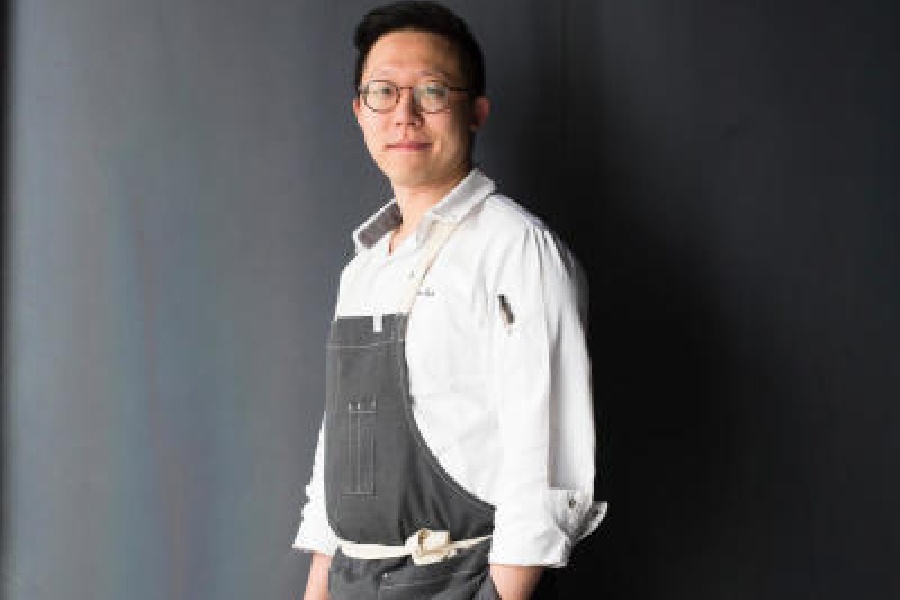All things Korean seem to be the flavour of the moment in India, not just in entertainment and music, but in food as well. Numerous Korean restaurants have popped up across India in the last few years and spicy hot instant Korean noodles, among other K-products, are now easily available. Some of the most popular Korean dishes among people here include the kimchi (spicy fermented veggies), bibimbap (mixed veggies and rice bowl), bulgogi (grilled beef) and gimbap (like sushi).
Cut to Seoul, well-known Korean chef Jun Lee opened Soigne in 2015 and the restaurant, which serves contemporary Korean food, has so far won two Michelin stars for its novel, refined cuisine. Jun Lee will be in Bengaluru this month. Excerpts from an exclusive chat with The Telegraph.
Why do you think Korean food is so popular with Indians now?
The popularity of Korean food can be attributed to its diverse style. There is a thriving BBQ culture, as well as a variety of vegetarian and vegan dishes, collectively known as ‘temple food’. Some Korean foods are renowned for their spiciness, while others are characterised by a subtle flavor profile. This extensive range of flavors and ingredients makes Korean food a universally appealing cuisine.
What is unique about your restaurant Soigne and what are some of its signature dishes?
Soigne restaurant utilises traditional Korean ingredients and flavour combinations as well as Korean eating habits in their interpretation of modern Korean cuisine. These humanistic interests are combined with modern and international recipes to create a new style of food unique to Soigne. This innovative approach sets the standard for the modernisation of Korean food culture, reinterpreting other countries’ food cultures in a Korean style. The establishment’s signature dish is Seorae Escargot, a truffle-flavored steamed egg, local snail and spinach combination. This dish draws inspiration from traditional Korean cuisine, incorporating bone broth and steamed eggs, as well as adding flavours from France and Italy.
Soigne has two Michelin stars now. What do you feel about this achievement?
Attaining two Michelin stars represents one of the pinnacles of achievement in my entire career. However, I do not allow myself to become overly preoccupied with the title itself. From the outset of opening my restaurant, my primary focus has been on pursuing my own vision and on establishing my establishment as a source of guidance and inspiration for the next generation of culinary professionals, Korean gastronomy. I do not consider Michelin stars to be my primary objective. Rather, they are a natural consequence of my efforts to create a superior Korean dining scene.
What kind of food do you plan to serve during your visit to The Leela Bangalore this month?
The menu is similar to that currently offered by Soigne restaurant.
What is your advice to aspiring chefs?
Don’t doubt yourself, honour tradition but stand up for newness, run toward the future but don’t forget those who paved the way first.
What are some must-try dishes in Korean food?
Hanwoo (Korean beef), bibimbap and all the soups.
Pictures courtesy the author










